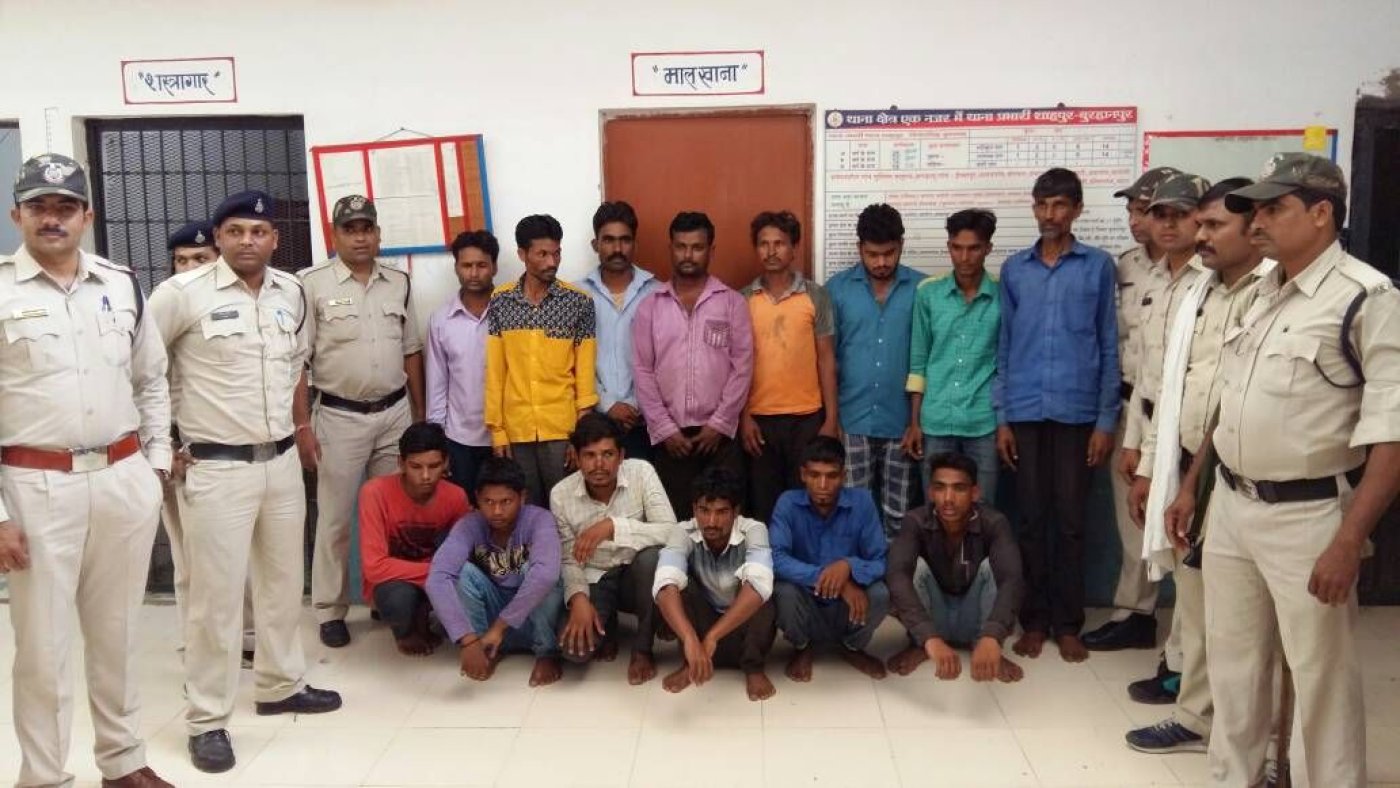Burhanpur/Bhopal: The residents of Mohad village in Madhya Pradesh, 30 km south of the state capital, Bhopal, no longer watch cricket matches between India and Pakistan because they are still traumatised by the arrest and trial of 17 Muslim men and two minors accused of cheering for Pakistan.
After India lost the Champion Trophy final at the Oval Stadium in London on 18 June 2017, a rumour spread about the villagers raising slogans supporting Pakistan, distributing sweets and burning celebratory crackers. The accused were booked for sedition and criminal conspiracy under the Indian Penal Code, 1860. When the police found it impossible to make a case, they dropped sedition and added promoting enmity between different groups. They persisted with the case even though the Hindu complainant was publicly saying that he made no such allegations against the Muslim men from his village.
At the time, the Bharatiya Janata Party (BJP) had been in power for three years at the centre, Hindu nationalism was rising, and the term “anti-national” was freely used against critics, especially Muslims. The mainstream media was reinforcing the government narrative and spreading Islamophobia.
In this case, news channels called the accused men “traitors.”
“The impact of that incident is so deep that neither the villagers play cricket nor watch it on TV when India and Pakistan are playing,” said Rafiq Tadvi, the village headman.
More than six years after they were arrested, jailed, allegedly beaten, kicked, and verbally abused, and made to fight a court case that indebted them, first-class magistrate Devander Sharma acquitted 16 Muslim men (one died in 2019) after the Hindu complainant and government witnesses told the court they were forced to make false allegations against them.
“After going through all the evidence, arguments and eyewitnesses, there was no proof that the accused raised slogans and burnt firecrackers,” Sharma wrote in the judgement delivered on 9 October 2023.
“Besides, the police also failed to provide evidence to prosecute them under section 153 - A of the IPC (promoting enmity between different groups). Thus, the court reached the verdict that all accused were exculpated.”
While the media widely covered the incident in June 2017, the October judgment acquitting them went unreported.
“We just presented our side before the court,” Shoeb Ahmad, the defence lawyer, said. “The complainant and eyewitness testimony did the rest. Although they were pressured to testify against them, they stood with the truth.”
Apart from the 17 Muslim men, two minors, Mubarik Tadvi and Zubair Tadvi, who were 16 at the time of arrest, were acquitted by the juvenile justice court in June 2022. Neither returned to school.
Zubair, a shrine caretaker in Indore, said, “I used to dream of being a police inspector, but now I have quit my education.”
Two lives were lost before the acquittal in October 2023.
Rubab Nawab, 40, killed himself in February 2019 because he could no longer bear the humiliation of being branded a “traitor.” Villagers said that Mukaddar Tadvi, 60, could not recover from the shock of his son Sikander Tadvi’s arrest, and he died in November 2021.
The judgement did not hold the MP police accountable for registering and prosecuting a false case.
‘It’s An Open Secret That We Were Tortured’
Mohad village, located on the Madhya Pradesh-Maharashtra border, is home to 4,000 residents, mostly marginalised Dalits, Bhil tribals, and Tadvi Bhil Muslims, a subcaste of the Bhils who converted to Islam. Almost everyone is a small farmer or daily wage worker, and they survive primarily on monthly government rations.
When Article 14 visited the village in February 2024, nine men between the ages of 25 and 60 said they were kicked, beaten and verbally abused by the town inspector Sanjay Pathak and other police personnel when they were locked up at the Shahpur police station for two days in June 2017.
They alleged the police pulled their beards, threatened to set them on fire if they protested and locked them up without food for two days.
“Even the man who came to the police station to serve tea used to kick us, calling us terrorists,” said Imam Tadvi, a 32-year-old daily wager.
“When they started assaulting me, I requested them not to hit my right leg. It's already broken,” said Sarfaraz Tadvi, a 35-year-old daily wager. “Still, they hit 12 canes on that spot. I was unable to walk for almost a year, and the treatment drained all my savings.”
Pathak told Article 14 that the allegations of physical violence were not true, nothing was reported in the mandatory medical examination before the accused were moved to jail, no one complained when produced before the magistrate, and their lawyer made no allegations in court.
Imam said they were never taken for a medical examination.
“It’s an open secret that we were tortured. The whole village saw when we were beaten before they took us to the police station,” he said. “We were shattered and could not speak before the magistrate.”
Ahmad, the lawyer, said he briefly spoke of the violence before the magistrate but did not pursue the matter because his clients were poor, in debt, and just wanted to be acquitted.
The men said they were called “terrorists” and made to clean the toilets and mop the floor every day when they were incarcerated in
Khandwa central jail, 90 km from Mohad village.
“We were made to sleep in such a way that one could not even change his side,” said Irfan. “We spent Eid on an empty stomach while our families outside ate dry bread.”
When they went for their hearings at the Burhanpur district courts, they said that lawyers would shout, “Desh ke gaddaron ko, goli maro salon ko” (Shoot the traitors) and “Atankwadiyon ko phansi do” (Hang the terrorists).
The verbal abuse continued at the police station, where they were called “traitors” or “terrorists” when they went to mark their weekly attendance after getting bail until the acquittal.
Pathak hung up the phone when Article 14 asked him about the allegation of verbal abuse over the years.
Article 14 has also sent an email to the director general of police, the additional director general of police (law and order), the public relations officer and the superintendent of police Burhanpur about the police personnel at the Shahpur police station fabricating a case against the Muslim villagers of Mohad village and the allegations of physical violence and verbal abuse.
We will update the copy if they respond.
Masood Ahmed Khan, secretary of the Coordination Committee for Indian Muslims in MP, said that the attitude of the police in MP towards Muslims and tribals in the state had always been “unconstitutional” and there was little the courts had done to change it.
“In the case of Mohad village, the court should have taken stern action against the police,” said Khan. “Not only the police but also lawyers and media persons should be held accountable for their misdeeds.”
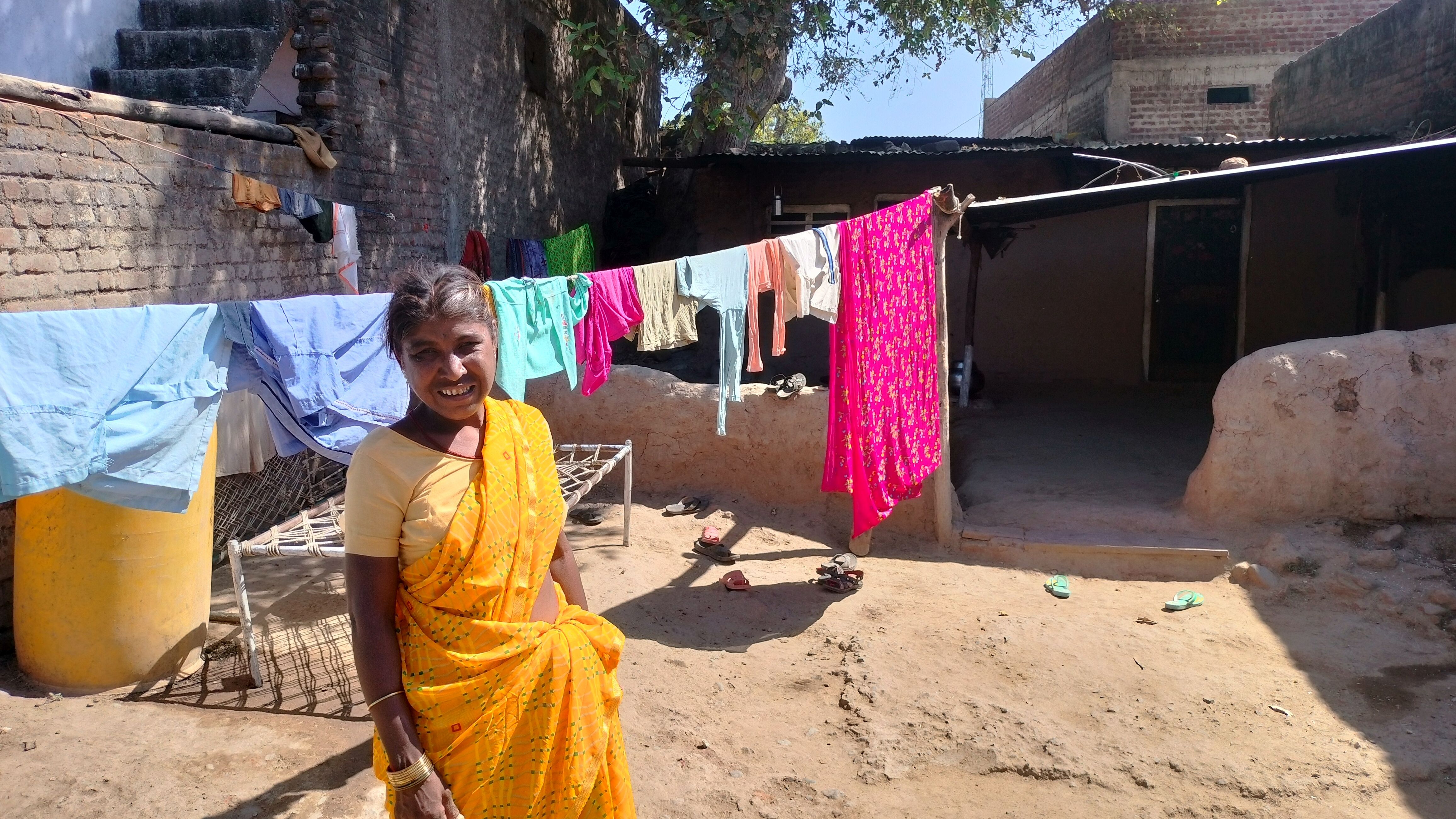
Why The Court Acquitted Them
Days after the incident, the complainant, Subhash Koli, told the media that he had made no complaint; the police had come up with it after the arrests had already been made.
Koli said that he went to Shahpur police station at around 11 pm on 18 June 2017 after the police detained his Muslim neighbour Anees Mansuri, a 25-year-old, one of most educated Muslims in the village who was preparing for competitive examinations and working as a tailor to fund his education. Koli was silent when the police arrested Mansuri, but then he went to the police station to get him released.
“They asked me, ‘A Hindu has become friends with a Muslim?’ and hit me twice on the back of my head,” Koli said at the time.
Koli said he was summoned to the police station on 19 June and saw the investigating officer, RA Yadav, writing the FIR based on events that did not occur.
Three months before the verdict, Koli, an electrician, succumbed to cancer. His mother and sister live on the rations they get from the public distribution system.
“He was the promoter of Hindu-Muslim unity in the village,” said Rafiq, the headman.
Twelve government witnesses refuted the police.
“I knew the accused because we live in the same village. But as far as my testimony to the case is concerned, I didn’t know anything. I’m on the witness list although I was never consulted," Pintu Jadhav, 30, told the magistrate on 15 March 2023.
Another witness, Sunil, 28, testified before the court on 24 January 2023 and said, “I didn’t identify the accused. I saw them for the first time at the police station.”
“I was in the village, but it’s wrong to allege that crackers were burnt at the bus stand, sweets were distributed in the village, and slogans were raised in support of Pakistan,” said Sunil. “It’s wrong to say they were hatching a conspiracy against India.”
A Question Of Justice
Criminal lawyer and Article 14 editorial board member Nikita Sonavane said that it had become routine for the police to make an ordinary man a complainant forcibly. The accused are eventually acquitted after they have spent time in jail, and they and their families have endured years of suffering, she said.
Sonavane, the founder of the Criminal Justice and Police Accountability Project in Bhopal, said that the Supreme Court in 2022 and the Madhya Pradesh High Court in 2018 ruled that those falsely implicated by the police should be compensated.
“But this happens in very few cases, and the victims are not even able to fight. In such a situation, it becomes difficult for common people to get justice,” she said.
“Acquittal is not justice if the allegations are not proven,” said Sonawane. “What about what the accused have to face in fake cases? This ranges from mental stress to financial loss. What about that? Real justice will be done only when there is a provision for compensation after acquittal.”
Ahmad, the lawyer, said his clients did not want to pursue litigation for compensation or for holding the police accountable.
“The reason is penury,” he said. “They don't want justice. They want to get rid of this case and live a normal life.”
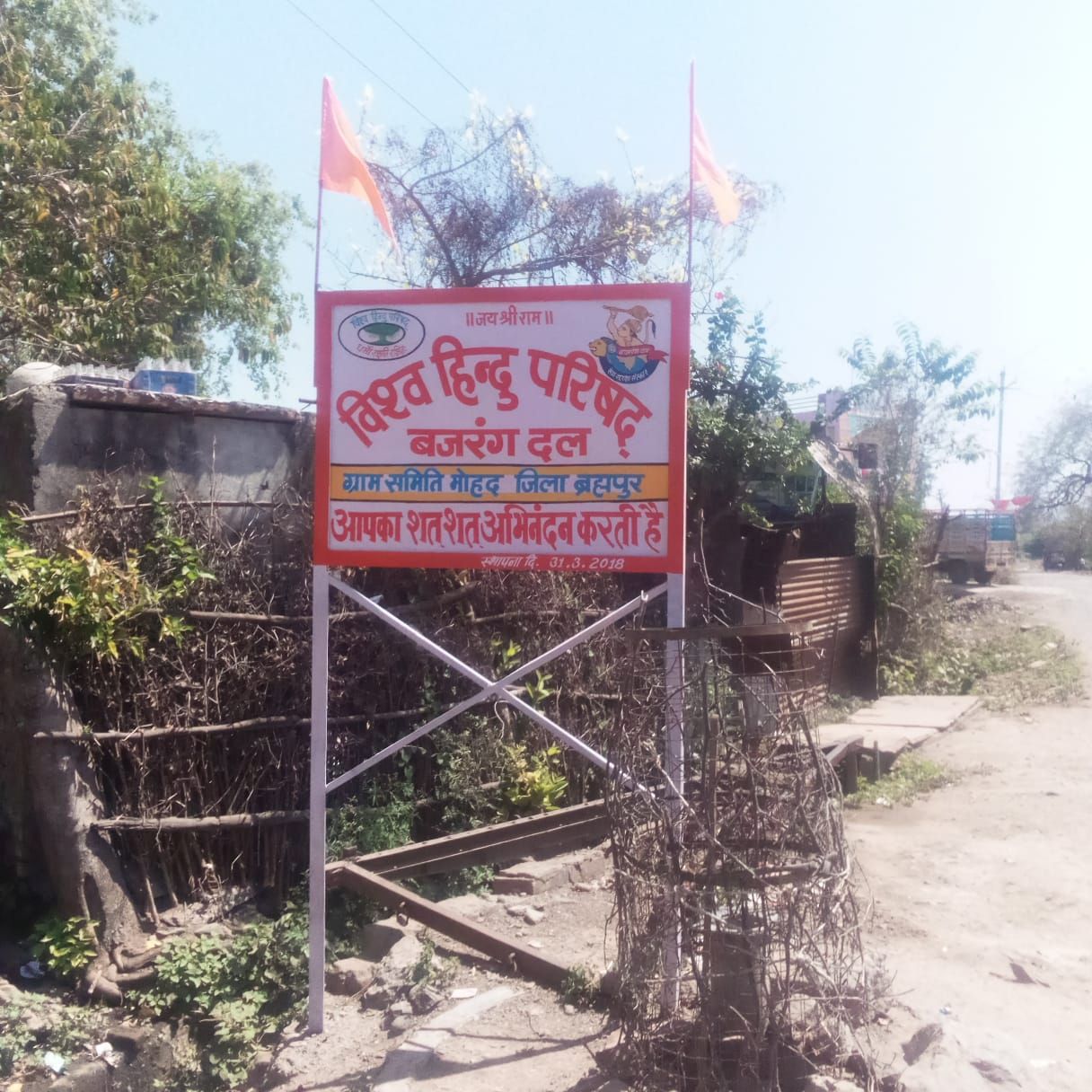
Deploying Islamophobia
Ahmad, the lawyer, explained the political objective behind the case. He said that before every state election, the BJP-led government used stray incidents and controversial issues to polarise voters on religious lines.
The Muslims of Mohad village became a target before the 2018 state assembly election.
A year before the 2023 Assembly elections, there was a communal riot in Burhanpur’s neighbouring district, Khargone, on the Hindu festival of Ram Navami on April 10, 2022. One Muslim man was killed, and over 40 Hindus and Muslims were injured.
The BJP government gave orders for the properties of “rioters” or “stone pelters” to be bulldozed. Almost 50 properties belonging to Muslims were razed over the next few days.
The authorities said the homes and shops, including houses built under a central government scheme, either encroached on government lands or were built without permission. They also demolished Mohd Shaikh's shop even though he did not have hands and could not have pelted stones.
According to the 2011 census, 6.7% of the 72 million people in Madhya Pradesh are Muslims.
Burhanpur district, where the Muslim men were accused of raising pro-Pakistan slogans, is 51% Muslim and has a rich history dating back to the Mughal era. Still, the BJP, which famously does not seek Muslim votes or field Muslim candidates, won both the state assembly seats—Burhanpur and Nepanagar—from 2008 to 2018. But they lost the 2023 election from here.
Incidents where Muslims were accused of raising slogans in favour of Pakistan surfaced in Ujjain, Shajapur, Katni, Chhatarpur, and Mandsaur. At least three cases registered against them appeared to be baseless.
Rafiq Tadvi, the headman of Mohad village, said the acquitted men received no compensation from the government even though the police made up a case against them.
Villagers said that a year before the incident, the Bajrang Dal—the Vishwa Hindu Parishad youth wings—had opened a unit in the village one year before the incident. Since then, there have been attempts to spoil the peace between Hindus and Muslims.
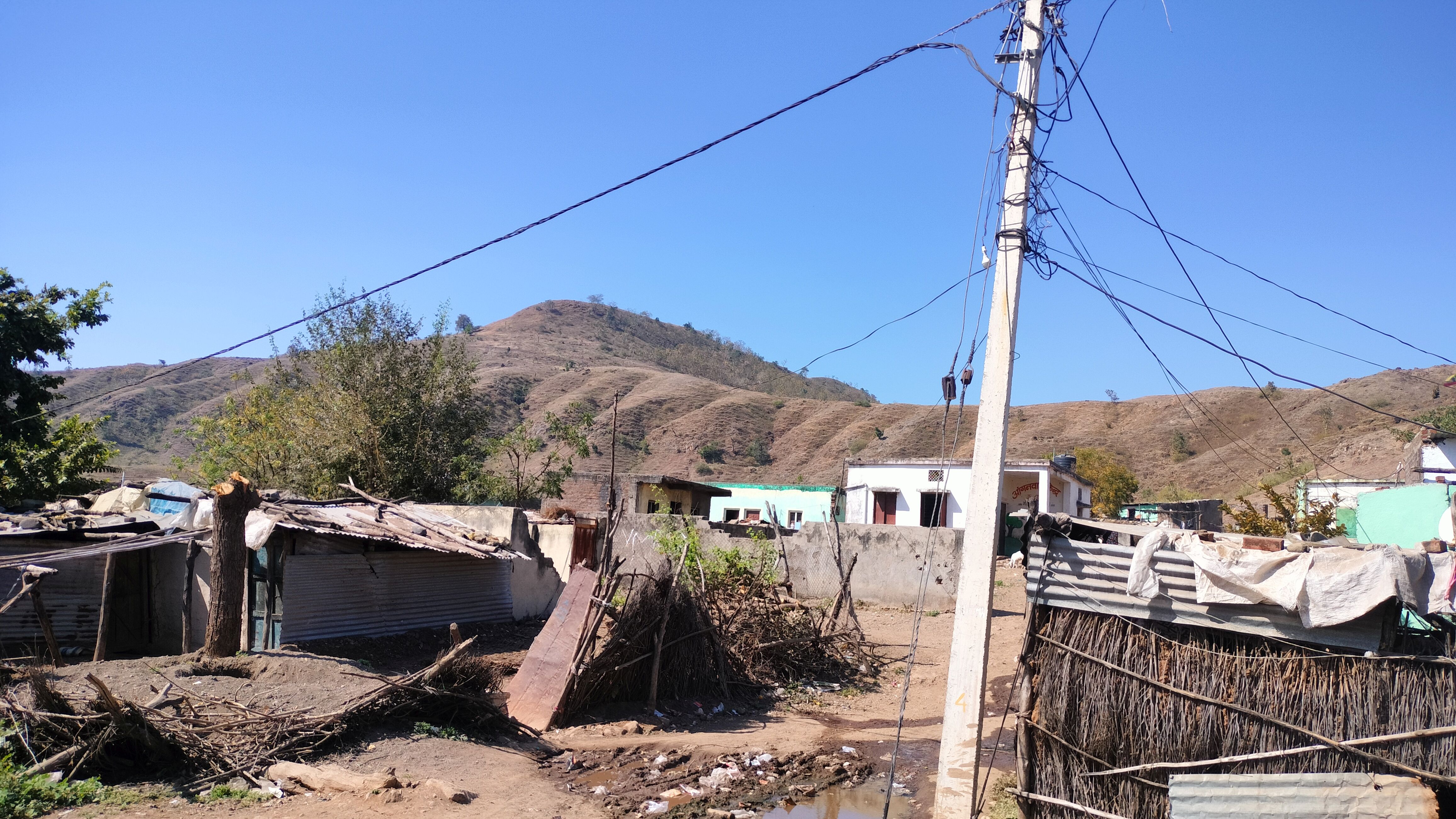
Raided & Arrested
Karan Singh, a 36-year-old witness who turned hostile, told Article 14 that after the rumour spread on 18 June, the police came to the village and started picking people up and taking them to the police station.
For three days, the police detained anyone who had a television in their homes, said Singh. Muslims were made accused, and Hindus were made eyewitnesses.
“When police vehicles approached, people started running to their houses like in retro movies (80s and 90s) when dacoits attacked the villages,” he said. “Many Muslims hid on the hillock for over a week to evade police arrest.”
Imam Tadvi, the 32-year-old daily wager, had returned from a day of hard labour and two hundred rupees and was playing with his infant daughter when the police picked him up.
Imam has neither a smartphone nor a television in his house, which has a tin roof.
“The moment they heard my name, they snatched Zaiban and threw her away. Her nose was bleeding when I went to pick her up. They pounced on me. They pushed me through the wall with my neck, saying, ‘saale iss desh ka namak kha kar gaddari karta hai,’” (You live in India but are a traitor).
“We don't have money for food. Who can afford to burst crackers and distribute sweets after watching a match on TV?” he said.
After speaking of the incident, Imam showed a scar on his daughter’s face, now eight years old.
“I was clueless as to why the police arrested me,” he said. “It was in police custody that I learned something had happened during the India—Pakistan cricket match.”
Imam incurred a debt of over two lakh to fight the case. It will take him two or three years to repay it.
Sarfaraz Tadvi, 35, said he took a Rs 2 lakh loan, which he would repay in five years.
“Police often barged inside Muslim homes to harass women,” he said, recalling the raid. “One day, when I objected to this harassment, they abused me and left me. But the next day, they arrested me and put my name in the FIR.”
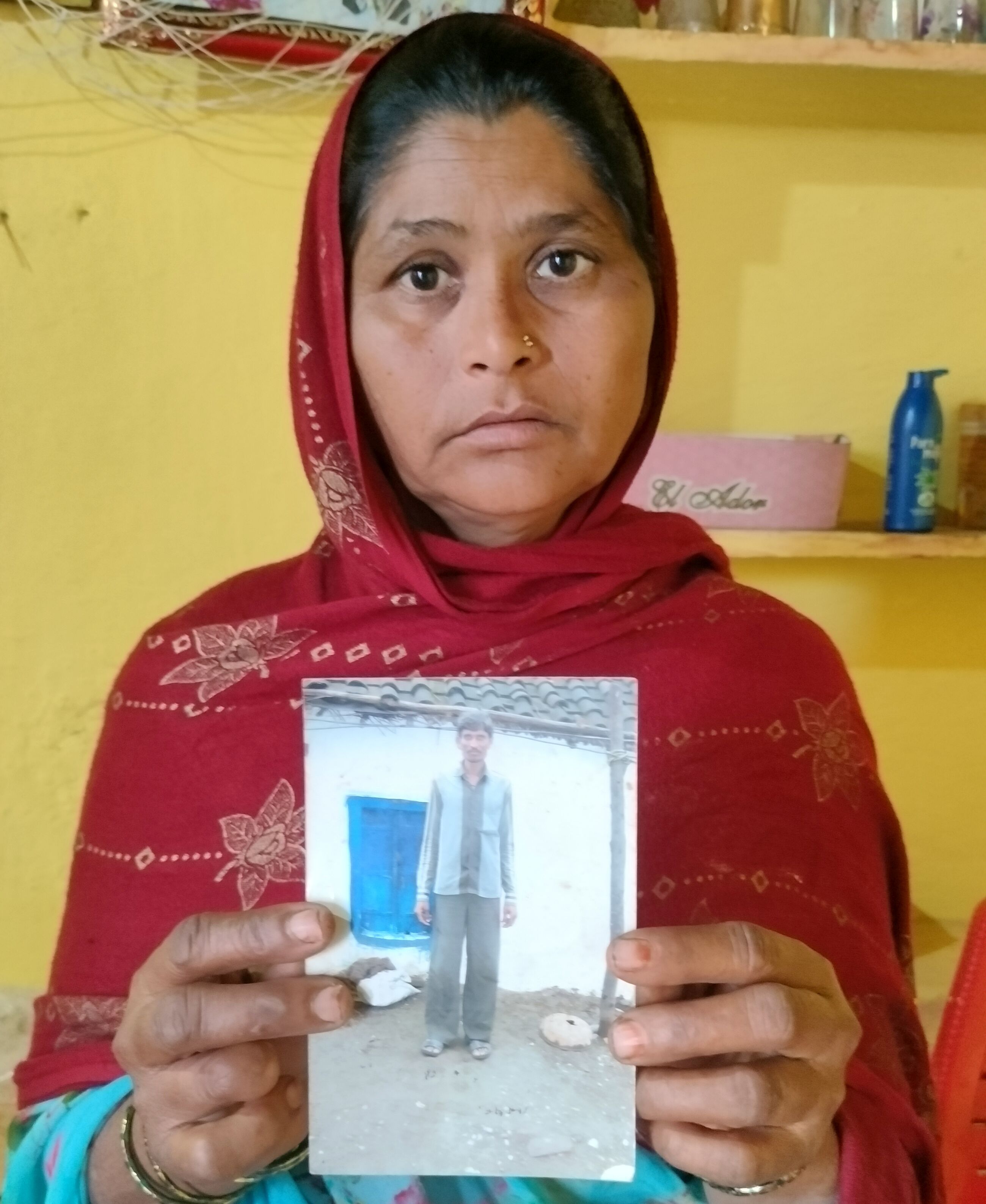
Deaths
Rubab Nawab, 40, killed himself by consuming pesticide in February 2019, leaving behind a widow, two children and a debt of two lakh rupees. His father died a week later.
His oldest son, now 18 years old, quit school and started earning as a daily wage labourer.
His widow, Zubaida Bai, 40, recalled the day he was arrested.
“Two policemen entered the house and assaulted him after hearing his name. When both the children started crying, they abused them, saying, ‘Chup ho atankwadi ke aulad warna yahi khatam kar dunga.’” (Shut up, you son of a terrorist, or else you will be killed.)
“He was devastated with day-to-day humiliation and the tag of traitor,” she said. “He used to cry after returning from the police station and the court.”
Sikander Tadvi, whose 60-year-old father Mukaddar killed himself in 2021, was anguished that he did not live to see him acquitted.
“He didn’t want to live with that tag of terrorist and traitor,” he said. “At least he would have died in peace.”
(Kashif Kakvi is a multimedia journalist who has covered central India for almost a decade. Rishav Raj Singh is a reporter from Madhya Pradesh and Azim Premji Foundation’s Constitution Fellow.)
Get exclusive access to new databases, expert analyses, weekly newsletters, book excerpts and new ideas on democracy, law and society in India. Subscribe to Article 14.

